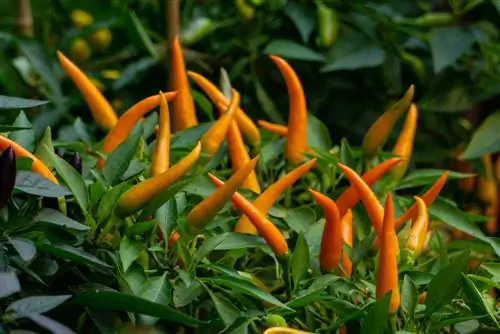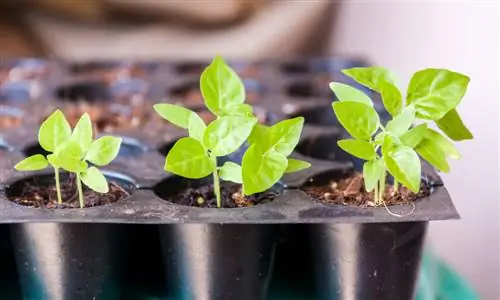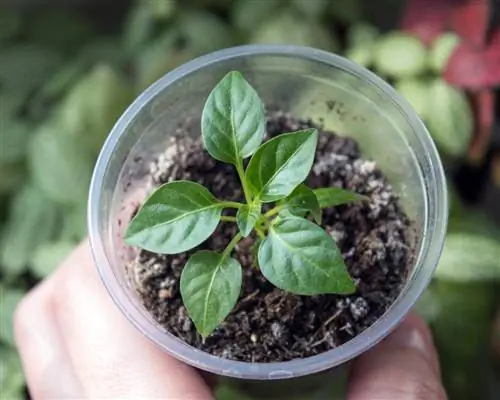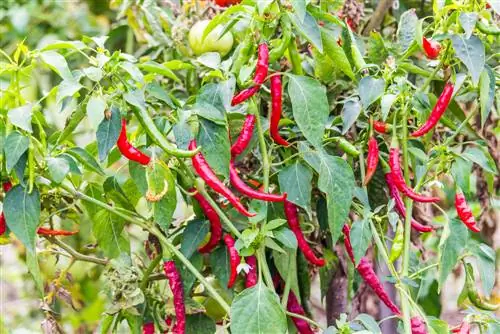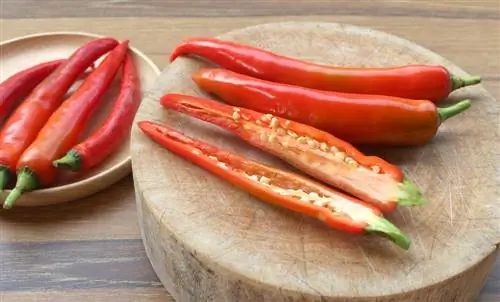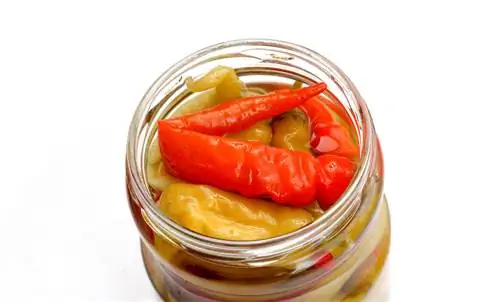- Author admin leonars@hobbygardeners.com.
- Public 2023-12-16 16:46.
- Last modified 2025-01-23 11:21.
Have you ever enjoyed a freshly picked pepperoni? With your own plant in the garden, you can harvest many delicious pods with conscientious care. If this is also several years old, you won't feel guilty about eating. At least you can look forward to the fruits in the coming year.
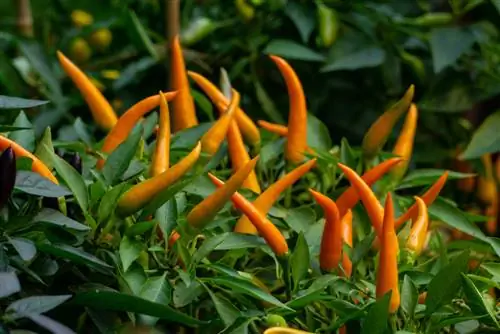
Are hot peppers perennial plants?
Hot peppers can be perennial by bringing them over the winter and then cultivating them again. Bright locations, mild temperatures, moderate watering and correct pruning allow your pepperoni plant to be used for several years in many cases.
Is the hot pepper perennial or annual?
In many gardening guides, only five varieties of peppers are described as perennial. However, numerous breeders have long known from their own experience that it is possible to cultivate almost all varieties the following year. So don't necessarily rely on the information provided by the seed packaging or the nursery. Just try it out for yourself.
Note: For varieties with very fast growth, the effort of overwintering is usually not worth it. Here it is better to dispose of the old plant in the compost and re-sow in January. However, you can use the seeds of the old plant.
Overwintering perennial hot peppers
Since hot peppers are sensitive to frost, you have to bring them indoors during the cold season. Here you can get tips on the circumstances:
- bright, sunny location (preferably a windowsill)
- moderate watering, but always moist substrate
- mild temperatures (10°C rising is optimal)
- Checking for pest infestation
- don't put it back outside until mid-May (after the ground frost has subsided)
Even more harvest yield through correct pruning
If you cut back after the first harvest, it is even possible to produce a second crop. If you were able to pick fruit in the summer, it is worth shortening the shoots to 3 cm. With a bit of luck, you will be rewarded again with fiery pods in October. This makes your peppers not only perennial, but even more productive.

